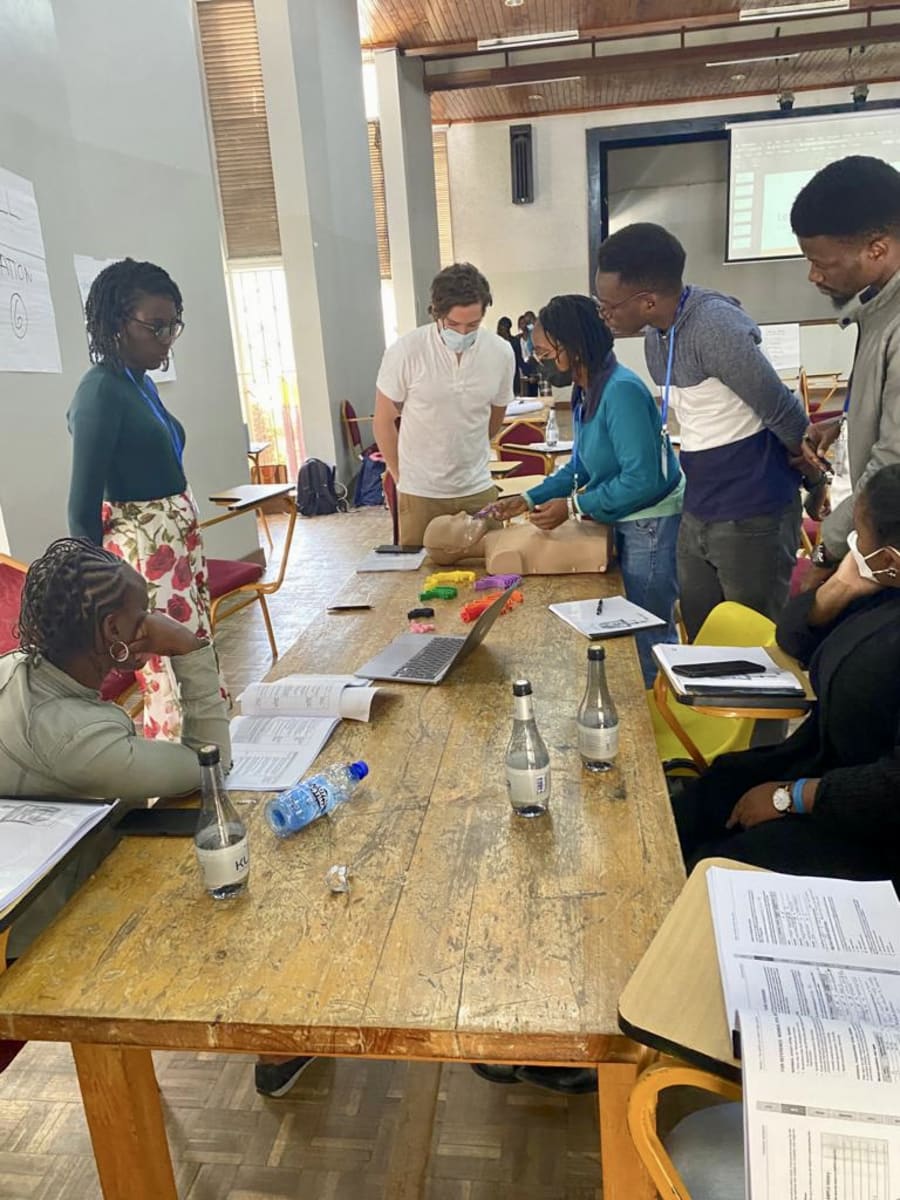We are collaborating with the University of Nairobi School of Medicine to expand the Emergency Medicine training for medical students and recent graduates. This will be accomplished by running an emergency medicine-focused ultrasound course and a WHO Basic Emergency Care (BEC) course* for 6th-year medical students (final year of training) and recent graduates. Last year our group facilitated a WHO BEC course for graduating medical students at the University of Nairobi and the course was highly regarded by the participants. Additionally, exams and surveys demonstrated that the course improved their knowledge base and confidence in managing acute illnesses and traumatic injuries. Having received positive feedback from last year’s course, we are also working with the medical school to incorporate the WHO BEC course into the medical school curriculum going forward. This year we are also evaluating knowledge retention one year after taking a WHO BEC course by testing the participants from the previous course. In addition to the WHO BEC course, we will also be running the subsequent WHO training of the trainer course to prepare BEC course graduates to teach the course in the future.
Additionally, we are planning an emergency medicine-focused point of care ultrasound course to be taught to University of Nairobi medical students. The course will be taught by a combination of EM attending physicians, fellows, and residents.
*https://www.who.int/publications/i/item/basic-emergency-care-approach-to-the-acutely-ill-and-injured
The primary population served with be students and recent graduates at the University of Nairobi School of Medicine. Emergency medicine is still in the early stages of development within Kenya as it was officially recognized (gazetted) as a specialty in 2017. Increasing medical student exposure to emergency medicine and ultrasound may encourage students to pursue advanced EM training as the specialty grows within Kenya.
Recently the Kenya Ministry of Health released the Kenya Emergency Medical Care Strategy (2020–2025)*, an effort to expand the emergency medical care available to citizens. As Kenya expands emergency medical care building a more robust emergency medicine education curriculum will help achieve these goals. The expected impact is to improve the skills and knowledge of final-year medical students and recent graduates to manage acutely ill medical and trauma patients. As ultrasound becomes increasingly integrated with emergency medical care the combination of facilitating a WHO BEC course and ultrasound course will better prepare medical students for a future in emergency medicine.
*https://www.emergencymedicinekenya.org/wp-content/uploads/2020/11/KENYA-EMERGENCY-MEDICAL-EMERGNCY-STRATEGY_2020-2025.pdf












Our collaboration with the University of Nairobi School of Medicine resulted in 42 early-career physicians in Kenya completing the WHO Basic Emergency Care course. An additional 17 participants became provisional BEC trainers by completing both the BEC course and the subsequent training of the trainer course. The participants included recently graduated doctors in their internship year. This was the second year of facilitating the WHO BEC with the University of Nairobi School of Medicine, based on these plans to incorporate the course into the medical school curriculum in the future. Our course keynote speaker was a physician from Moi Teaching and Referral Hospital located in Eldoret and we are developing a partnership to help facilitate a BEC course for the health care providers in their Accident and Emergency Department.
We had 5 Kenyan doctors who are trained BEC facilitators teach this course allowing them to move along the WHO BEC training pathway and bringing them one step closer to becoming master trainers. Additionally, one of our colleagues from Rwanda helped teach the course and, as a result, has become a WHO BEC master trainer, allowing him to independently facilitate courses and train future BEC facilitators in the future.